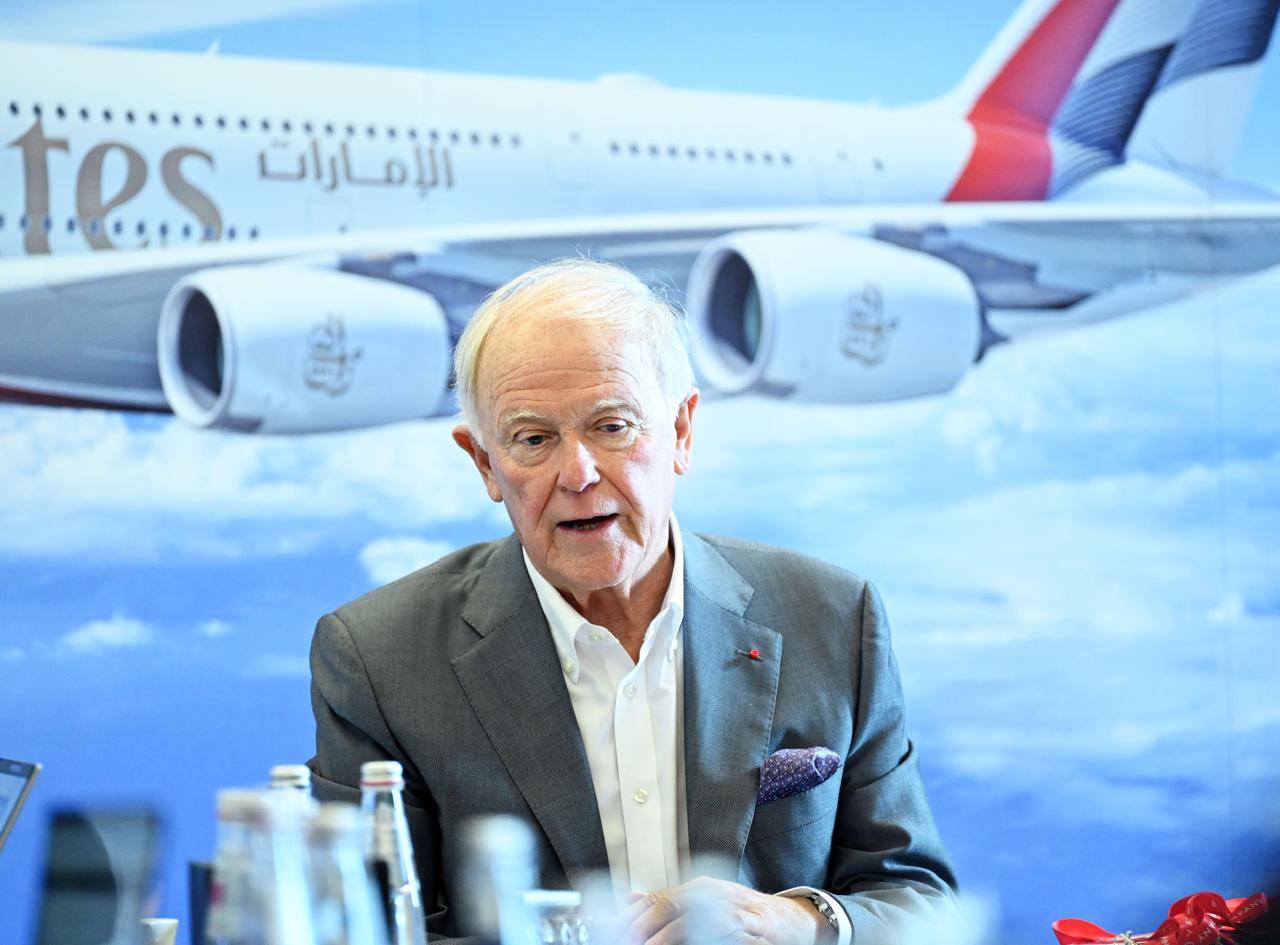The president of Emirates has said the world is likely entering a economic reset. Sir Tim Clark’s comments come as the travel industry assesses the fallout from a turbulent week on international financial markets.
“Right now, at this moment, we are in troubled times. The U.S. domestic market for the big three over there is facing difficulties,” Clark said on CNBC Tuesday.
Asked why he believes the world is entering uncharted economic territory, Clark highlighted the scale of the changes taking place: “It involves a measure of reset to a level that the global economy probably hasn’t seen since perhaps the financial crisis of 2008-09.”
Investors are spooked by the introduction of tariffs on goods entering the U.S. and a subsequent hit to global trade.
“Obviously, the United States administration is out to reset, something which is going to take a lot longer than an overnight arrangement. In that time, there may be some troubled waters,” warned Clark.
Sir Tim has seen his fair share of economic peaks and troughs. He famously joined Emirates in 1985, when the Dubai airline was little more than a start-up. In 2003, he was appointed company president. Today, Emirates is the world’s largest international carrier by most metrics with an all-widebody fleet of more than 250 aircraft.
What Next for Global Carriers?
Clark drew on his 40-year tenure at Emirates to offer context around what could come next. “All we can say is that in the past when we faced these difficulties – one of which was the 2008-09 financial crisis – the return of demand was very robust. Much stronger than it was before the crisis.”
Clark also suggested that Emirates’ diverse network will give it an advantage over rivals that are exposed to specific markets. The airline serves more than 130 destinations across six continents from its Dubai hub.
“Business models like Emirates – given the international scope of what it does and the strength of what it does – we’ll be able to ride this particular wave and get through it as well as it has done in the past.
“We’re very diverse in the countries that we serve, all of which react in different ways to what’s going to happen now. That gives us a fairly solid base… because when one takes a dip we replace it with something else. Not all carriers can do that. They may be tuned to the North Atlantic market, Europe, North America, or whatever. Those are the ones that face more vulnerability because they’re not that well spread but in the end they’ll manage and they’ll get through it.”
Speaking late last month, the chief executives of Europe’s largest long-haul airlines said they are watching the U.S. market closely but weren’t seeing declines yet.
“We’re not seeing anything as of today, but it is concerning for us and we are watching – as we do all markets – very, very closely. As of today, we don’t see any material change in terms of capacity. It is as planned for us moving forward,” said Air France-KLM CEO, Ben Smith, on March 27.
A more bearish assessment came a few days later from Oli Byers, CFO at Virgin Atlantic: “In the last few weeks, we have started to see some signals that U.S. demand has been slowing,” Byers is quoted by Reuters, adding: “We think that is quite a natural reaction to general consumer uncertainty.”
Long-Haul Resilience?
It isn’t all bad news. Clark emphasized that some sectors of the airline industry are performing well: “Long-haul travel remains very strong and robust. We can see very strong bookings going forward through the rest of this year and, funnily enough, in the beginning of next year. Demand for travel remains always very resilient.
“Looking forward, it’s early days to see what effect the resetting of the terms of trade will have on the global economy and ergo discretionary demand for leisure travel.”
Clark’s comments come on the eve of first-quarter earnings from Delta Air Lines. The U.S. giant will be the first to report its January-March financials on Wednesday.
Last month, the company cut its Q1 revenue and profit forecast due to an increase in economic uncertainty.
“The outlook has been impacted by the recent reduction in consumer and corporate confidence caused by increased macro uncertainty, driving softness in domestic demand,” Delta said in a regulatory filing.
The carrier said its premium, international, and loyalty revenues were still consistent with its first-quarter guidance.
The economic turbulence has led Skift Research to lower its outlook for global travel. It now forecasts between 2% to 5% travel industry growth in 2025. This is down from an earlier figure of 6% to 9% growth at the start of the year.
Writing last week, Skift’s head of research, Seth Borko, suggested travel is resilient, but not immune to economic shocks.
“Skift Research believes that travel has become more recession resistant over the past decade. Travel is the single most aspirational purchase one can make. It is key to family connection, business ties, and the modern experience economy. But make no mistake: Travel is still not recession proof,” said Borko.
Airlines Sector Stock Index Performance Year-to-Date
What am I looking at? The performance of airline sector stocks within the ST200. The index includes companies publicly traded across global markets including network carriers, low-cost carriers, and other related companies.
The Skift Travel 200 (ST200) combines the financial performance of nearly 200 travel companies worth more than a trillion dollars into a single number. See more airlines sector financial performance.
Read the full methodology behind the Skift Travel 200.


